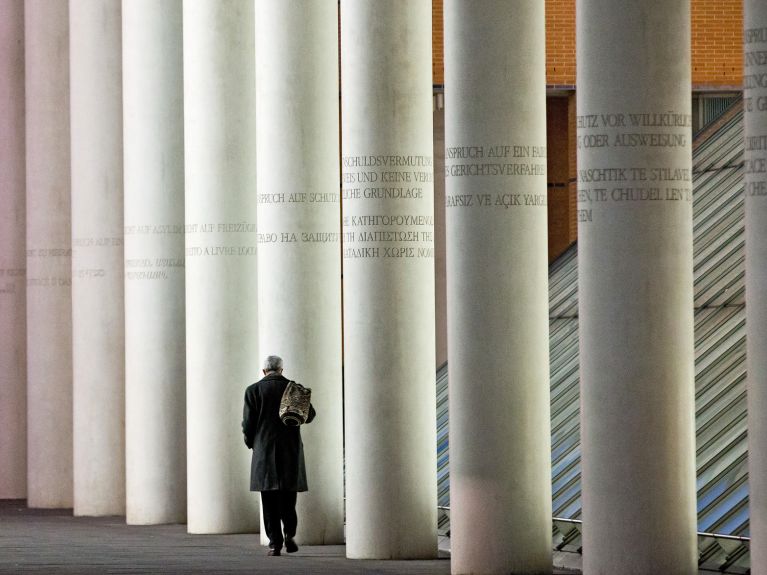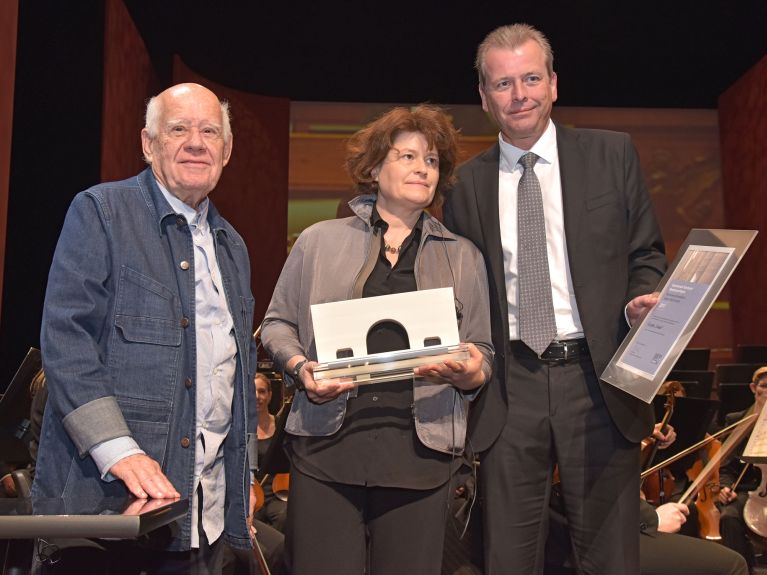Human rights prize for “Caesar”
At considerable risk to their own lives, a Syrian photographer and his supporters smuggled dramatic proof of torture out of the country.

Germany. His photographs portray torture, suffering and death. They document “industrial-scale killing”, as a former chief prosecutor from the United Nations put it. Codenamed “Caesar”, a former Syrian military photographer smuggled more than 50,000 photographs out of Syria. More than half of the images show people who died in Syrian prisons as a result of torture, execution, disease, malnutrition or other abuse. In recognition of their courageous efforts, “Caesar” and his supporters were presented with the 2017 International Nuremberg Human Rights Award on 24 September.
“’Caesar’ and his colleagues were driven by a desire to ensure that the documented crimes against humanity would not go unpunished. To this end they took great risks upon themselves”, explains the jury statement. “In bestowing the International Nuremberg Human Rights Award on the ‘Caesar’ group, the jury also wishes to highlight the history of Nuremberg as the cradle of modern international criminal law.”
I had never seen anything like it.
When the civil war broke out in Syria in 2011, it was “Caesar’s” job to photograph the corpses of Syrian soldiers and opposition forces and to systematically archive the images. He found the work increasingly difficult to bear. “I had never seen anything like it”, he later said in an interview with the French journalist Garance Le Caisne, whose persistence played a major part in ensuring that “Caesar’s” images found their way into the public domain.
The courage to act
“Caesar” decided to act rather than continue documenting in silence: over a period of roughly two years, he secretly copied his photographs onto USB sticks and smuggled them out of the country with the help of friends. His life was constantly at risk as a result.
In January 2014, “Caesar’s” photographs were published on the Internet and found to be “reliable” by an investigative commission of former chief prosecutors of international criminal courts. “Caesar” fled from Syria and by his own account is now living in Europe.
Because his life is still in danger, the photographer was not able to attend the award ceremony at Nuremberg Opera House. Garance Le Caisne accepted the award on his behalf.

A symbol of peace
The International Nuremberg Human Rights Award is the city’s answer to the National Socialist race laws that were passed there in 1935. As the initiators explain, the award is supposed to “be a symbol to all the world that never again must Nuremberg send out any signals apart from those of peace, reconciliation, understanding and respect for human rights”. The award is endowed with 15,000 euros and is presented every two years to individuals or groups who “commit themselves or have committed themselves in exemplary fashion to the preservation of human rights, in some cases at considerable personal risk”.
International Nuremberg Human Rights Award: the prizewinners
